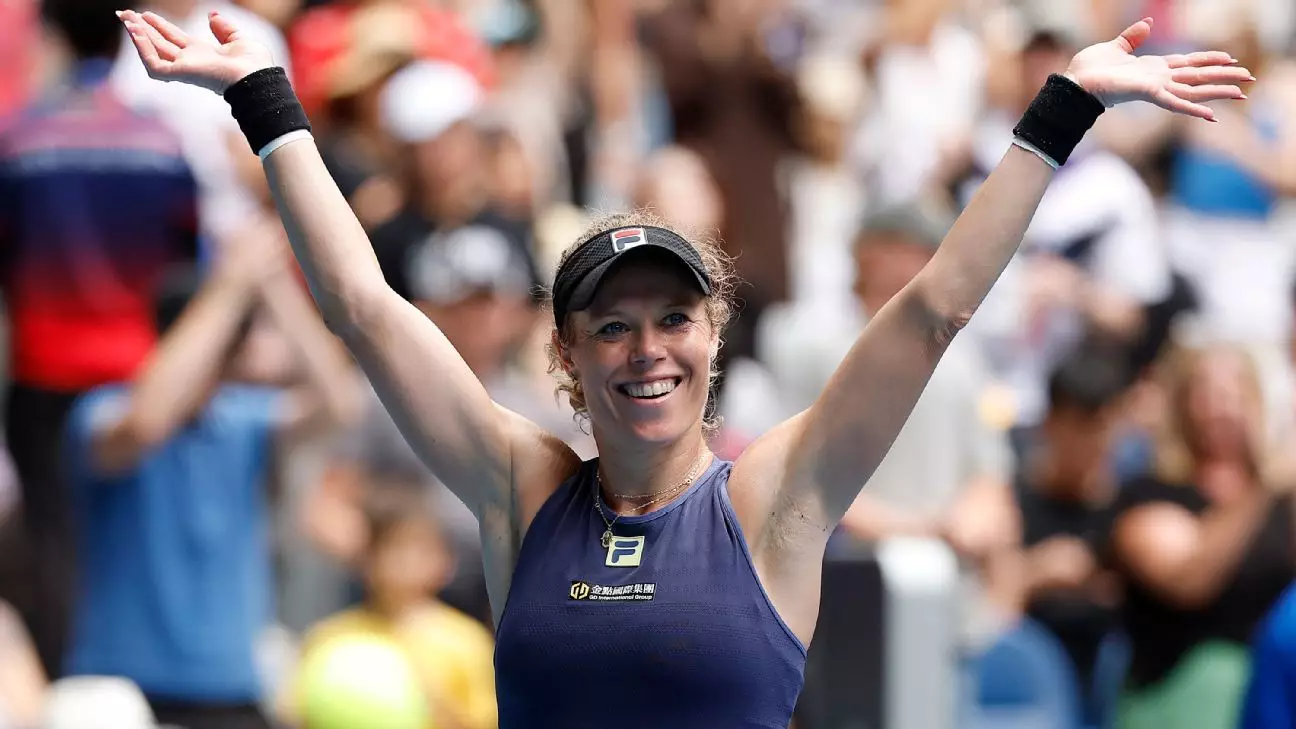In a riveting display of determination and skill, Laura Siegemund delivered a shocking upset to Qinwen Zheng during the second round of the 2024 Australian Open. This moment marked a spectacular turn of events for Siegemund, who, despite her 36 years, showcased a level of aggressive play that disrupted Zheng’s game plan entirely. The match, held on the iconic John Cain Arena, concluded with a score of 7-6 (3), 6-3 in favor of the German veteran, highlighting the unpredictable nature of tennis, where experience can trump youthful exuberance.
Zheng, ranked significantly higher than Siegemund at No. 4 in the world, entered the tournament with high expectations following her successful 2023 season, which culminated in an Australian Open final appearance against Aryna Sabalenka and an Olympic gold medal in Paris. Yet, this initial encounter was a glaring reminder that past accolades do not guarantee future success. Zheng’s performance was marred by a series of on-court distractions, including a time penalty that disrupted her flow, as she struggled to maintain her rhythm amidst Siegemund’s persistent attacks.
Feeling the weight of her sudden setbacks, Zheng expressed her frustrations post-match, noting that it simply “wasn’t her day.” The loss of concentration proved costly, as she recounted a moment where her serve faltered, and she was keenly aware of the effect the time warning had on her mindset. Such lapses in focus can be detrimental in high-stakes matches, as even minor discrepancies can alter the course of play.
Siegemund, on the other hand, embraced the role of the underdog with poise. While she had not advanced past the third round at the Australian Open in her past twenty appearances, this match was a testament to her tenacity and tactical nous. By seizing the initiative from the very first point, she consistently put pressure on Zheng, forcing the favored player into a defensive posture. Her exceedingly bold strategy, coupled with a refusal to back down, demonstrated that Siegemund had not only come to compete but to win.
The veteran’s comment about having nothing to lose highlighted her liberating mindset, allowing her to play “more than her best tennis.” This mentality is often the key to upsets in major tournaments, where the pressure can weigh heavily on the shoulders of higher-seeded players.
This match carried significant implications for both players moving forward in the tournament. For Siegemund, the victory ignites a potential run that could rekindle her career and give her the confidence necessary to break preconceived notions of her capabilities at this level of competition. Historic in its nature, she became the first unseeded German woman to defeat a top-five seed at the Australian Open since Marlene Weingartner in 2003, marking a noteworthy achievement in her legacy.
Conversely, for Zheng, the early exit serves as a crucial learning opportunity. The need to adapt and refocus is an essential skill for any top athlete, and for her, this experience may fortify her resolve as she prepares for subsequent tournaments. With a year of important matches ahead, the insights gleaned from this match could prove invaluable, as she navigates her professional journey with more wisdom under pressure.
As the Australian Open progresses, spectators will be eager to see how Siegemund capitalizes on her surprising success, while Zheng looks to re-establish her dominance in the ensuing matches. This tournament continues to unfold with dramatic upsets and fierce competition, reminding fans and players alike that in tennis, anything can happen. The roaring crowd, the central court’s electrifying atmosphere, and the narratives of triumph and struggle will undoubtedly shape the rest of the tournament, creating storylines for years to come.


Leave a Reply